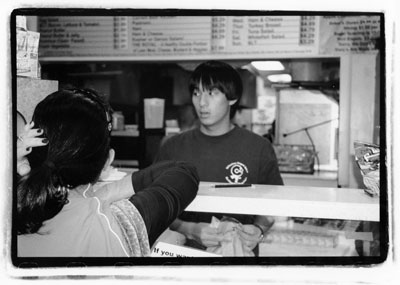All Nonfiction
- Bullying
- Books
- Academic
- Author Interviews
- Celebrity interviews
- College Articles
- College Essays
- Educator of the Year
- Heroes
- Interviews
- Memoir
- Personal Experience
- Sports
- Travel & Culture
All Opinions
- Bullying
- Current Events / Politics
- Discrimination
- Drugs / Alcohol / Smoking
- Entertainment / Celebrities
- Environment
- Love / Relationships
- Movies / Music / TV
- Pop Culture / Trends
- School / College
- Social Issues / Civics
- Spirituality / Religion
- Sports / Hobbies
All Hot Topics
- Bullying
- Community Service
- Environment
- Health
- Letters to the Editor
- Pride & Prejudice
- What Matters
- Back
Summer Guide
- Program Links
- Program Reviews
- Back
College Guide
- College Links
- College Reviews
- College Essays
- College Articles
- Back
Pity and McDonalds
Pitying without taking action is like eating at McDonald’s. Both concepts leave something more to be desired and neither has any long-lasting benefits.
When we pity, we feel compassion for the misfortune of others. This sensitivity resonates in our emotions and puts us on a self-deceiving moral high ground. The realization that we are more fortunate can be a positive effect of pitying. However, with this newfound thankfulness also comes a profound sense of guilt. We feel guilty for having a more favored life and, in some cases, we recall previous incidents of selfishness or wrongdoing that provoke feelings of compunction. We begin to absorb the sadness of the less fortunate. We regret all those times when we took our own blessed lives for granted. Pity might motivate us to be compassionate people—to perform a meaningful action that might have the power to influence change. However, most of the time pity stands on its own; we pity someone but feel that it is not our place to interfere.
A meal at McDonald’s (to virtually everyone) is initially delicious. The first few bites of a McChicken and a side of greasy fries can make one feel as if he is she is eating real food. The plethora of chemicals entering our bodies creates an artificial sense of satisfaction. Five minutes later, the realization that we have just inhaled some toxins and washed it down with a splash of corn syrup soda sinks in. We begin to feel the heaviness of having eaten such a concoction. We think about nutritious things—like fresh fruit, baked fish, and diced carrots. There is no fulfillment at McDonald’s or in the realm of pity. At McDonald’s, we will begin to feel hungry about an hour later. When we pity without taking action, we feel sadder about ourselves and the state of the world. We realize that we aren’t superheroes; we think about how we are selfish creatures. Thus, the sense of emptiness persists in both scenarios. After eating at McDonald’s or unproductively pitying, we feel worse. Both concepts are deceiving, and neither is productive.

Similar Articles
JOIN THE DISCUSSION
This article has 0 comments.
